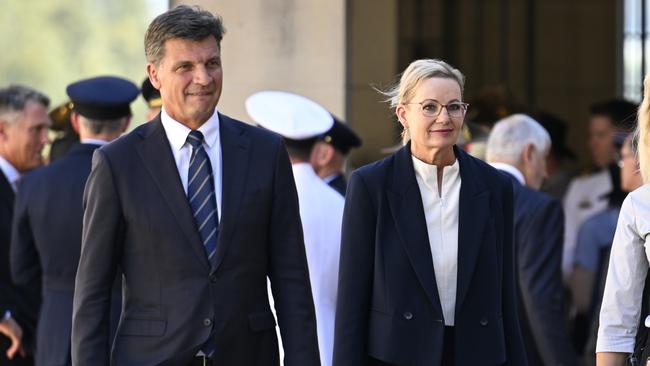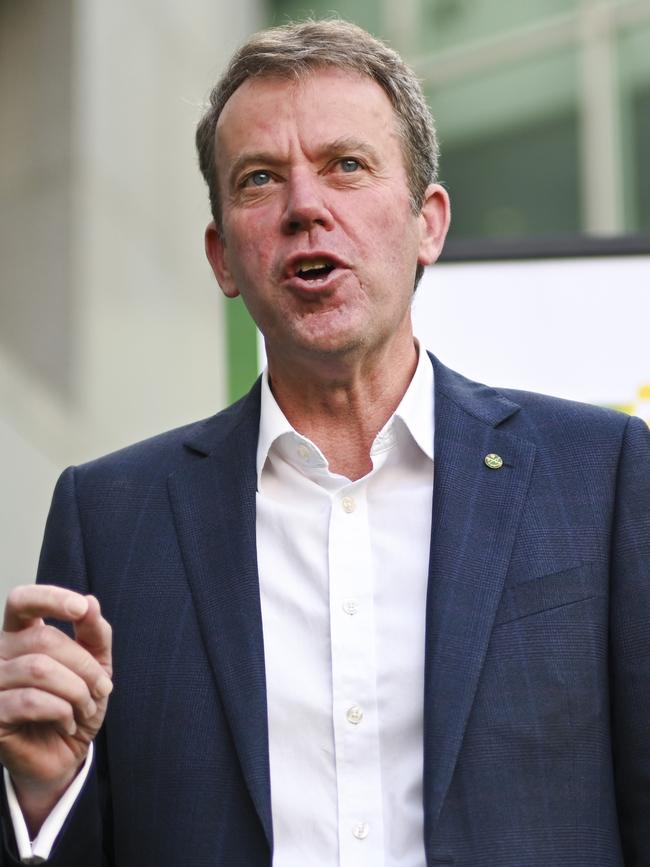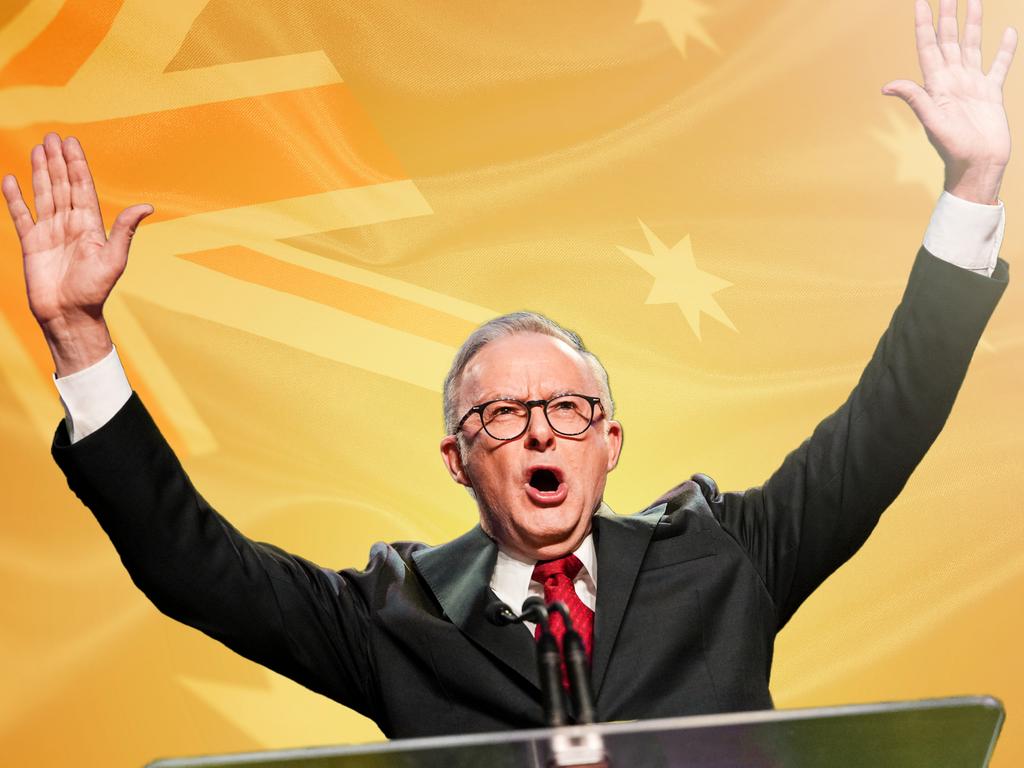
John Milton’s Paradise Lost begins with Satan’s forces lying in ruin in the depths of hell, having been cast from heaven by God’s army.
“With hideous ruin and combustion down,
“To bottomless perdition, there to dwell,
“In adamantine chains and penal fire.”
Welcome to the Liberal Party, circa May 2025.
In good news, this is just the start of the greatest epic poem in English. Because, early on, in an astonishing show of defiance, Satan stands and calls to his fallen angels: “Awake, arise or be forever fallen.”
Through sheer force of will, the Prince of Darkness drags his vanquished army to its feet and gives his troops a renewed sense of purpose. He reframes hell not as a prison but as a state of mind. He insists they are not defeated if they refuse to submit: “The mind is its own place, and in itself can make a Heaven of Hell, a Hell of Heaven.”
In raising any army, leaders matter and ideas matter. Unfortunately, the Liberal Party finds itself without obvious leaders and out of ideas. In part that’s because many political careerists in its ranks have no idea what the party stands for, aren’t signed up to it or cannot articulate it in a way that makes sense to a 21st-century Australian audience.
This is a pity because the Liberal Party actually has a pretty good story to sell. At its core, liberalism champions the dignity and freedom of the individual, grounded in reason, the rule of law and limited government.
It seeks to balance liberty with order, protect rights through democratic institutions and create space for pluralism, debate and the peaceful contest of ideas. These principles are timeless, they just need the policies and words to meet this age.
The alternative is a model of governance that elevates the group over the individual, assumes the state can and should solve every problem, and steadily expands its reach through regulation and redistribution.
Where liberalism trusts free citizens to shape their own lives, its rival builds dependency, centralises power and narrows the space for dissent. The natural end of this is the end of your freedom.
In his Miltonian five-volume epic on the history of Australian liberalism, David Kemp traces the development of liberal thought and institutions from European Enlightenment ideals through colonial self-government to the modern Liberal Party. He argues liberalism, centred on individual freedom, constitutionalism and civic virtue, has been the driving force in Australia’s democratic evolution.
Given that almost no one in the modern Liberal Party is likely to read these tomes, someone should produce a CliffsNotes version for the troops. It will come in handy in the long days ahead.
The Labor Party would hotly disagree with this version of history because it is much better at selling its own tale. But this is what the contest of ideas is about, and to have the contest the Liberals need to come armed with ideas. Right now, they are shooting blanks.
The proof of the power of liberal ideas is that they won the voice campaign. The No case succeeded against the odds because people were persuaded that no one should be entitled to more rights than anyone else.


Early sentiment strongly favoured the Yes case, driven by goodwill and a widespread desire to improve the lives of Indigenous Australians. But as the debate crystallised around the proposal to constitutionally entrench different rights for one group, support evaporated. Australians rejected the idea not because they are racist but because they believe in equality.
Remember, the No campaign began as an unbackable underdog pitched against the full weight of political, corporate and cultural power. It falls into the same category as another virtue windmill that any real liberal should tilt against: net zero.
To question this dogma in the aftermath of the election may seem like madness. And perhaps it is, if you lack the leaders and lack the ideas. But the liberal case against it is compelling because it demands permanent, Covid-level government interference in the lives of all Australians.
This is not an argument about whether the climate is changing. It’s a reckoning with a futile policy experiment that will cost trillions, achieve nothing and impose itself on every aspect of our lives.
Energy systems are life systems. Meddle with them at your peril. To believe mandated carbon-cutting targets can bend physical systems to political will is to believe in voodoo. No country will reach net zero. Those few that try hardest to hit an impossible target will pay the most. And the poor will suffer most as taxpayers’ dollars are harvested by an endless procession of carpetbaggers.
Trying to retool the electricity grid is only the beginning, and that is proving to be an expensive, reckless disaster. What lies ahead is harder, costlier and far more disruptive. Future generations will not be spared the effects of climate change, but both current and future generations will bear the financial and social cost of bad policy. And we will be chasing the receding horizon of net zero while the US, China, India, Russia, Indonesia and much of Africa have no intention of following.
In the end, the outcomes will be decided by physics and not politics, so the risks of taking on this doctrine are lower than they may first appear. Just like the voice.
But right now some of the same Liberal “powerbrokers” who destroyed the party are urging leadership hopefuls to fall into line with this profoundly anti-liberal doctrine. It doesn’t even make political sense. Back current energy policies and you’re on a unity ticket with Labor, the Greens, the teals and other assorted independents. So why would anyone vote for change at the next election when there is nothing to change to?
Propose an alternative, and when physics and international politics assert themselves you just may be proved right.
So, with bad ideas afoot, can the Liberals at least pick good leaders? The choice is limited and the early signs are not good. The first reflex of Angus Taylor and Sussan Ley was to wage open war against each other when unity is the only path out of hell. Whoever emerges from this fight inherits a poisoned crown, condemned to preside over the wreckage they helped create.
Andrew Hastie has shown great wisdom in not wanting the job at this stage. He is only 42, is based in Western Australia and has a young family. Why burn your career, abandon your loved ones and ruin your life endlessly trekking across the country trying to referee a party that probably will spend at least the next couple of years engaged in internecine warfare? Dan Tehan is a decent man in an impossible position. Hopefully he throws his support behind the person best equipped to lead.
Of the unhappy few left in the party’s ranks, two stand out as having the commitment to liberal ideas and rhetorical skills to make them count: James Paterson and Tim Wilson. But Paterson is in the Senate, so only Wilson could be a candidate. He is an unlikely longshot who may believe his best bet is to wait because more than one leader will fall on the long march ahead. So alas, for the Liberals, a lengthy stay in Hades beckons.
As Milton wrote: “Long is the way, and hard, that out of Hell leads up to light.”





